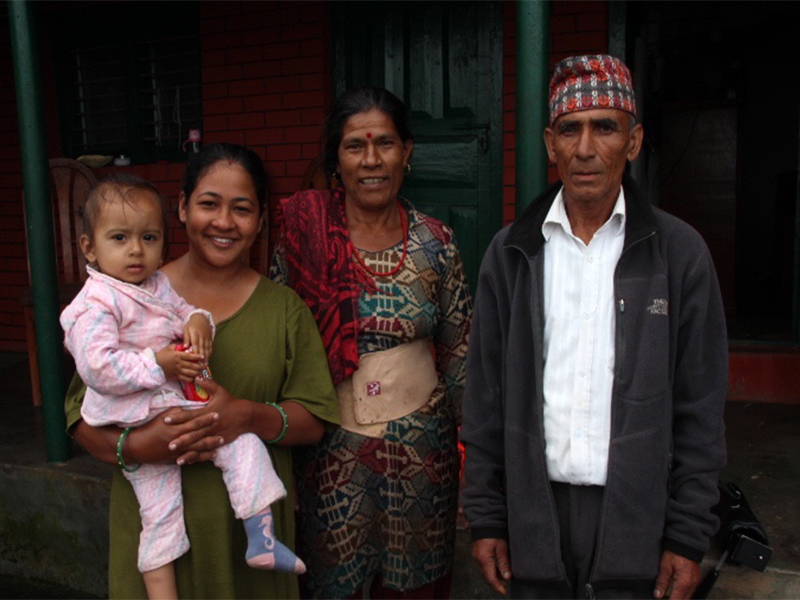

"I Wish the Government Would Support the Commercialization of Agriculture"

Ganga Bahadur Timilsana used to be a driver in the Gulf, but came back to Nepal to be closer to his family. “I wish the government would support the commercialization of agriculture,” he said.
Loans would have lower interest rates and become more affordable for rural farmers, who often have no choice but to take loans from the only development bank around.
A few years ago, Timilsana’s wife, Ganga Maya Timilsana, became a member of the Pokhara Sarangkot Small Farmer Agriculture Cooperate Ltd. (SFACL) and took out a loan for vegetable farming. Later, she took out another for livestock farming.
They now cultivate a wide range of vegetables, including cucumbers, coriander, cauliflower, chili peppers, cabbage and spinach, and own 16 goats and two buffalos that provide them with enough milk for family consumption.
The family consists of the duo, two sons, one daughter in law, and one granddaughter, Prisha, who is 18 months. One of their sons, Prisha’s father, is currently working in Abu Dhabi, and will be back within the next few months to help support Bhagirthi Timilsana Ksetri, his wife, raise their daughter.
Timilsana said the family never kept records of how much income they made on a yearly basis, so he is not sure how much more profit they are making now.
“The loans have helped us grow our farms,” Timilsana said, “but the interest at 9 per cent on vegetable farming and 16 per cent livestock farming is still too high.”
Blog & Success Stories

